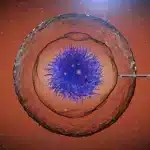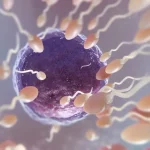
Introduction
In the realm of assisted reproductive technology (ART), the utilization of frozen donor embryos has become a pivotal option for individuals and couples seeking to build their families. The prospect of genetically testing these embryos before transfer introduces a significant advancement in ensuring the health and viability of the resulting pregnancies. This article delves into the methodologies, benefits, limitations, and ethical considerations surrounding the genetic testing of frozen donor embryos, with a focus on Preimplantation Genetic Testing (PGT) and Preimplantation Genetic Diagnosis (PGD), as guided by the American Society for Reproductive Medicine (ASRM) and the U.S. Food and Drug Administration (FDA).
Understanding Preimplantation Genetic Testing (PGT) and Preimplantation Genetic Diagnosis (PGD)
Preimplantation Genetic Testing for Aneuploidy (PGT-A): PGT-A involves screening embryos for chromosomal abnormalities, such as trisomy or monosomy, which can lead to conditions like Down syndrome. This test is particularly beneficial for individuals of advanced maternal age or those with a history of recurrent miscarriages.
Preimplantation Genetic Diagnosis (PGD): PGD is employed to identify specific genetic disorders within embryos, such as cystic fibrosis or sickle cell anemia. This is especially pertinent for individuals known to be carriers of certain genetic conditions.
Both PGT-A and PGD are conducted at the blastocyst stage (Day 5 or 6) of embryo development, where a small number of cells are biopsied from the trophectoderm, the outer layer of the blastocyst that will develop into the placenta.
FDA Guidelines on Donor Embryo Genetic Testing
The FDA mandates stringent screening and testing for donor embryos to mitigate the risk of transmitting infectious diseases. According to FDA regulations, all donors must undergo testing for relevant communicable disease agents and diseases to adequately reduce the risk of transmission of infectious diseases.
However, the FDA does not currently require genetic testing for specific inherited disorders in donor embryos. This regulatory gap underscores the importance of informed decision-making by recipients and the necessity for clinics to provide comprehensive genetic screening options.
ASRM Recommendations for Genetic Testing in Donor Embryos
The American Society for Reproductive Medicine (ASRM) provides guidance on the evaluation of potential sperm, oocyte, and embryo donors. ASRM emphasizes the importance of donor screening, including medical and genetic history assessments, to identify potential risks for inherited disorders.
While ASRM supports the use of PGT-A to improve implantation rates and reduce the risk of miscarriage, it also acknowledges the limitations of these technologies. Society advises that genetic testing should be considered on a case-by-case basis, considering the specific circumstances and preferences of the recipients.
Benefits of Genetic Testing for Frozen Donor Embryos
- Enhanced Pregnancy Outcomes: Genetic testing can identify chromosomally normal embryos (euploid), which are more likely to implant successfully and result in a healthy pregnancy.
- Reduced Risk of Miscarriage: By selecting embryos free from chromosomal abnormalities, the likelihood of miscarriage is diminished, providing a more favorable reproductive outcome.
- Prevention of Inherited Disorders: PGD allows for the identification of specific genetic conditions, enabling the selection of embryos free from these disorders, thereby preventing the transmission of hereditary diseases.
- Informed Decision-Making: Genetic testing provides recipients with comprehensive information about embryos, facilitating informed choices regarding embryo transfer and family planning.
Limitations and Ethical Considerations
- Cost Implications: The addition of genetic testing to the IVF process can significantly increase the overall cost, which may not be covered by insurance and could be a financial burden for some recipients.
- Emotional Impact: The process of discarding embryos deemed genetically abnormal can be emotionally challenging for recipients, raising ethical concerns about the value placed on potential life.
- Accuracy of Testing: While PGT-A and PGD are highly accurate, they are not infallible. False positives or negatives can occur, leading to potential misclassification of embryos and influencing decision-making.
- Regulatory Gaps: The absence of mandatory genetic testing requirements by regulatory bodies like the FDA may lead to variability in screening practices among clinics, affecting the consistency and reliability of genetic testing outcomes.
Clinical Protocols and Success Rates
Clinics adhering to ASRM guidelines and FDA regulations report varying success rates for embryo transfers involving genetically tested frozen donor embryos. For instance, a study by CCRM Fertility indicated that among women aged 35–37, 68.9% of chromosomally normal frozen embryo transfers resulted in a live birth.
However, it’s important to note that success rates can be influenced by multiple factors, including the quality of the donor embryos, the recipient’s uterine environment, and the experience of the fertility clinic.
Conclusion
Genetic testing of frozen donor embryos represents a significant advancement in reproductive medicine, offering the potential for improved pregnancy outcomes and the prevention of inherited disorders. While the FDA mandates screening for infectious diseases, it does not require genetic testing for specific inherited conditions, highlighting the importance of informed decision-making by recipients. ASRM provides guidelines supporting the use of genetic testing, emphasizing its benefits while acknowledging the associated limitations.
Prospective parents considering the use of frozen donor embryos should engage in thorough consultations with fertility specialists to understand the available genetic testing options, associated costs, and potential implications. By aligning medical practices with established guidelines and fostering informed choices, the journey toward parenthood can be both informed and empowering.
Note: This article is intended for informational purposes and does not substitute professional medical or legal advice. Always consult with qualified professionals when making decisions.

Dr. Kulsoom Baloch
Dr. Kulsoom Baloch is a dedicated donor coordinator at Indian Egg Donors, leveraging her extensive background in medicine and public health. She holds an MBBS from Ziauddin University, Pakistan, and an MPH from Hofstra University, New York. With three years of clinical experience at prominent hospitals in Karachi, Pakistan, Dr. Baloch has honed her skills in patient care and medical research.





